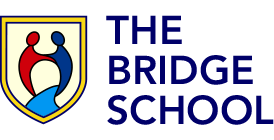In our pre-formal pathway PSHE and RHE is interwoven into all aspects of school life. Pupils learn to develop their self-help skills, their interaction with those around them and their emotional literacy skills through the carefully designed curriculum, which links across the 4 areas of need with each pupils’ Education, Health & Care Plan. Alongside the curriculum, and as specific needs arise, staff will plan individualised programmes of work for pupils and deliver tailored sessions on a 1:1 and small group basis.
In the semi-formal & formal pathway PSHE & RHE is delivered through a combination of carefully sequenced and well-planned weekly curriculum timetabled opportunities as well as whole-school approaches. It is also inter-woven into all aspects of school life through the children’s Education, Health & Care Plans. We have created a bespoke RHE & PSHE curriculum in line with the guidance from the National Curriculum. Alongside the curriculum, and specific needs arise, staff will plan individualised programmes of work for pupils and deliver tailored sessions to suit the needs on a 1:1 and small group basis.
We have chosen to implement Jigsaw PSHE for pupils on our semi and formal pathways for two reasons which are:
- It offers a curriculum that supports the children’s well-being, emotional development and their social skills
- The progression of skills have been carefully mapped out to ensure pupils have a deep understanding of each topic studied.
How have we adapted the scheme to ensure it meets the needs of our pupils?
Jigsaw PSHE has been introduced to pupils who are working on the semi and formal pathways. The scheme has been divided into 6 key areas of learning (jigsaw puzzle pieces), which are:
Being in My World
Celebrating Difference
Dreams & Goals
Healthy Me
Relationships
Changing Me
We have decided to cover 3 puzzles a year, which gives us time to break the learning down further and ensure our pupils have time to practise, learn and repeat skills before moving on to the next steps. We have carefully selected the year group path according to the levels and needs of the pupils in each class, but teachers will also look to the year group paths that come before and after, to ensure lessons are differentiated for the needs of all learners. Themed days and weeks (e.g. Mental Health Awareness Week) have also been mapped into this document.
We have carefully considered how and when to teach important themes that pupils could miss due to year group pathway they are accessing. We have decided that from Year 4 onwards, pupils will be taught about puberty and how their bodies will change as they move into adolescence. This thread will be revisited every half term, and will be taught in an age and developmentally appropriate way, to support pupils to understand the changes that will/are happening to themselves and their friends.
Sex Education, Drugs, Smoking, Online Behaviour (gambling & sexting) & Exploration:
Sex Education is not compulsory within primary schools and is not specifically taught at the Bridge School. Pupils do however (through our Science curriculum) learn the correct names for their body parts and parents are informed when these lessons are about to take place. We do not specifically teach our pupils about sex, drugs, smoking, online behaviour and exploration. These areas are touched upon in developmentally appropriate ways for some pupils though routines and class discussions, as and when required. If a concern arises around one of the issues highlighted above, then staff will seek advice and guidance from a DSL/PSHE Lead to help plan appropriate intervention activities to support the pupils in an appropriate and sensitive way.
